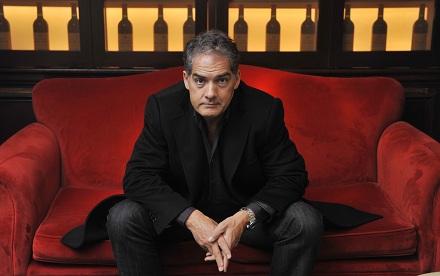
(Note: The 2013 Edgar Awards will be announced May 2 at the Grand Hyatt in New York City. The Edgar Symposium is May 1 at the Lighthouse International Auditorium in New York. Today's blog looks at Grand Master Ken Follett. On April 24, we discussed Margaret Maron, who shares the Grand Master honor).
Through the years I have read thousands of books, most of them in the mystery/thriller genre. That is not an exaggeration, but rather something in which I take pride.
And while I don’t remember every book, certain ones do stand out.
For example, Ken Follett’s Eye of the Needle. What struck me when I was reading this 1978 novel set during WWII wasn’t the spy aspect, of which there is plenty, or the Nazis and the secret code. Rather, it was Follett’s well-developed portrait of a strong woman who rises above her own feelings and fears to prove her inner resolve.
In Eye of the Needle, an elaborate code is set up to confuse the Nazis on the Allies’ plans. Henry Faber, a Nazi spy and assassin who can crack that code, is marooned on a remote island, which is the home of Lucy, a young bride, and David, her husband, recently handicapped in an accident.
Lonely and stuck in what is now a loveless marriage, Lucy and Henry become involved. She doesn’t know he is a Nazi spy and that his expertise could change the outcome of WWII. When she discovers his plan, Lucy starts her own covert operation.
With Eye of the Needle, Follett, in my opinion, set the stage for the new thriller, to take that genre to different heights. While I hate the term “think outside the box,” that is exactly what Follett did with Eye of the Needle.
One critic has described Follett’s feature ongoing theme as “a heroine in the grip of violently seesawing passions and people fighting for their freedom.”
Eye of the Needle was Follett's breakout novel. It put him on the best-sellers lists and earned him the 1979 Edgar Award for Best Novel from the Mystery Writers of America.
Since then Follett has written 20 best sellers and sold more than 100 million books. His historical dramas include Pillars of the Earth, an epic about the building of a cathedral in the Middle Ages.
The fact that it received rave reviews is an understatement.
It also was voted the third greatest book ever written by in Germany, beaten only by The Lord of the Rings and the Bible. London readers placed it No. 2 in the 60 greatest novels of the last 60 years. To Kill a Mockingbird was No. 1.
Pillars of the Earth has also spawned a highly praised TV miniseries and three board games.
His current project is his most ambitious yet. The Century Trilogy tells the entire history of the 20th century, seen through the eyes of five ordinary linked families: one American, one English, one German, one Russian, and one Welsh.
In Fall of Giants, Winter of the World and Edge of Eternity, which will be published next year, Follett takes us through the wars, revolutions, and issues that defined the 20th century.
Follett has been named one of this year’s Grand Masters by the Mystery Writers of America. During the Edgar Symposium, I will be interviewing him and Margaret Maron, who is the other Grand Master honoree.
We will talk about his career and his life. I hope we have time to discuss his childhood and why his parents would not allow their children to watch television or go to the cinema, and he found his escape in books. Perhaps we will discuss his love of music and the fact that he plays bass guitar in a band called Damn Right I Got the Blues, and appears occasionally with the folk group Clog Iron playing a bass balalaika.
However the conversation goes, it is certain to be lively.





